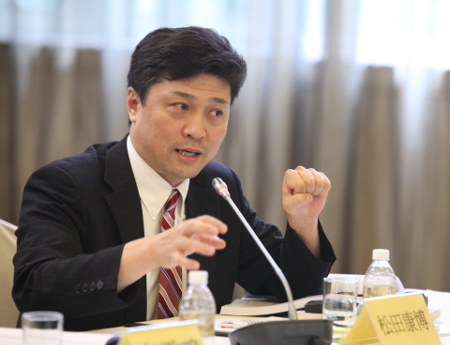
Full Text
簡体字 / 正體字 / English摘要:
本文的目的在於展望分析民主进步党在2016年总统大选重掌执政後的两岸关系,将出现何种的变化。习近平及蔡英文都是以重视主权为优先原则的政权,因此两岸间之摩擦似乎无法避免。不过,习蔡之间某种程度存在着一致的利害关系,因此进行了相当程度的接触丶沟通,并相互做出让步。可是即使有了这样的过程,双方做出让步的时间点没有交集,导致无法在2016年达成共识。不过“机会之窗”也并没有完全关闭。假如习蔡在未来成功的作出了某种程度的妥协,打开了“机会之窗”,两会的沟通机制也有一定程度的恢复,我们就可以将2016年的一连串过程解释为“失去的机会”;但如果两会之间的沟通机制持续中断,而且僵局延续到中长期,我们则可以将其解释为是“新常态的开端”。
摘要:
本文的目的在於展望分析民主進步黨在2016年總統大選重掌執政後的兩岸關係,將出現何種的變化。習近平及蔡英文都是以重視主權為優先原則的政權,因此兩岸間之摩擦似乎無法避免。不過,習蔡之間某種程度存在著一致的利害關係,因此進行了相當程度的接觸、溝通,並相互做出讓步。可是即使有了這樣的過程,雙方做出讓步的時間點沒有交集,導致無法在2016年達成共識。不過「機會之窗」也並沒有完全關閉。假如習蔡在未來成功的作出了某種程度的妥協,打開了「機會之窗」,兩會的溝通機制也有一定程度的恢復,我們就可以將2016年的一連串過程解釋為「失去的機會」;但如果兩會之間的溝通機制持續中斷,而且僵局延續到中長期,我們則可以將其解釋為是「新常態的開端」。
Abstract:
This paper investigates a set of plausible scenarios for cross-Strait relations following the Democratic Progressive Party’s (DPP) return to power in May 2016. My argument builds on my observation that both the Xi Jinping and Tsai Ing-wen administrations tend to prioritize the principle of sovereignty, so friction is unavoidable if both sides strictly adhere to their respective political positions. This paper highlights three political processes. First, that there is greater room for shared interest and actual contacts between the two leaders than previously assumed. Second, that the talks through 2016 were far from steady due to the uncoordinated timing of compromise, which left the overarching political process unsettled. Third, I argue that the window of opportunity for restoring dialogue remains open. This paper then assumes two plausible trajectories for future cross-Strait relations. First, one can frame the current situation as a “lost opportunity.” But if the two sides are willing to reconcile and resume exchanges between the ARATS and the SEF, the “window of opportunity” may still be reopened. Second, if both sides find the status quo to be politically expedient, the current status of a short-term impasse may alternatively become more permanent and settle into a “new normal”.